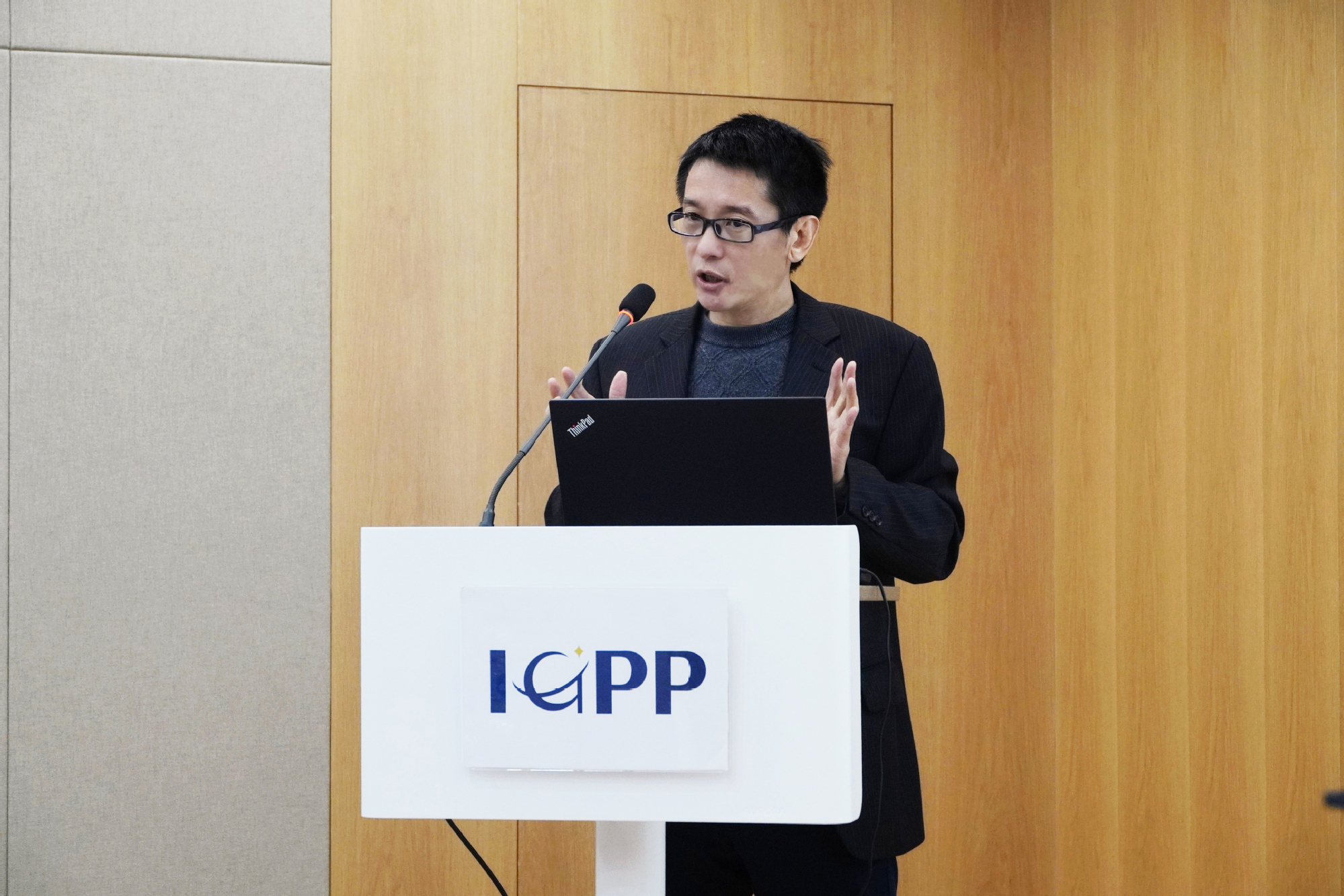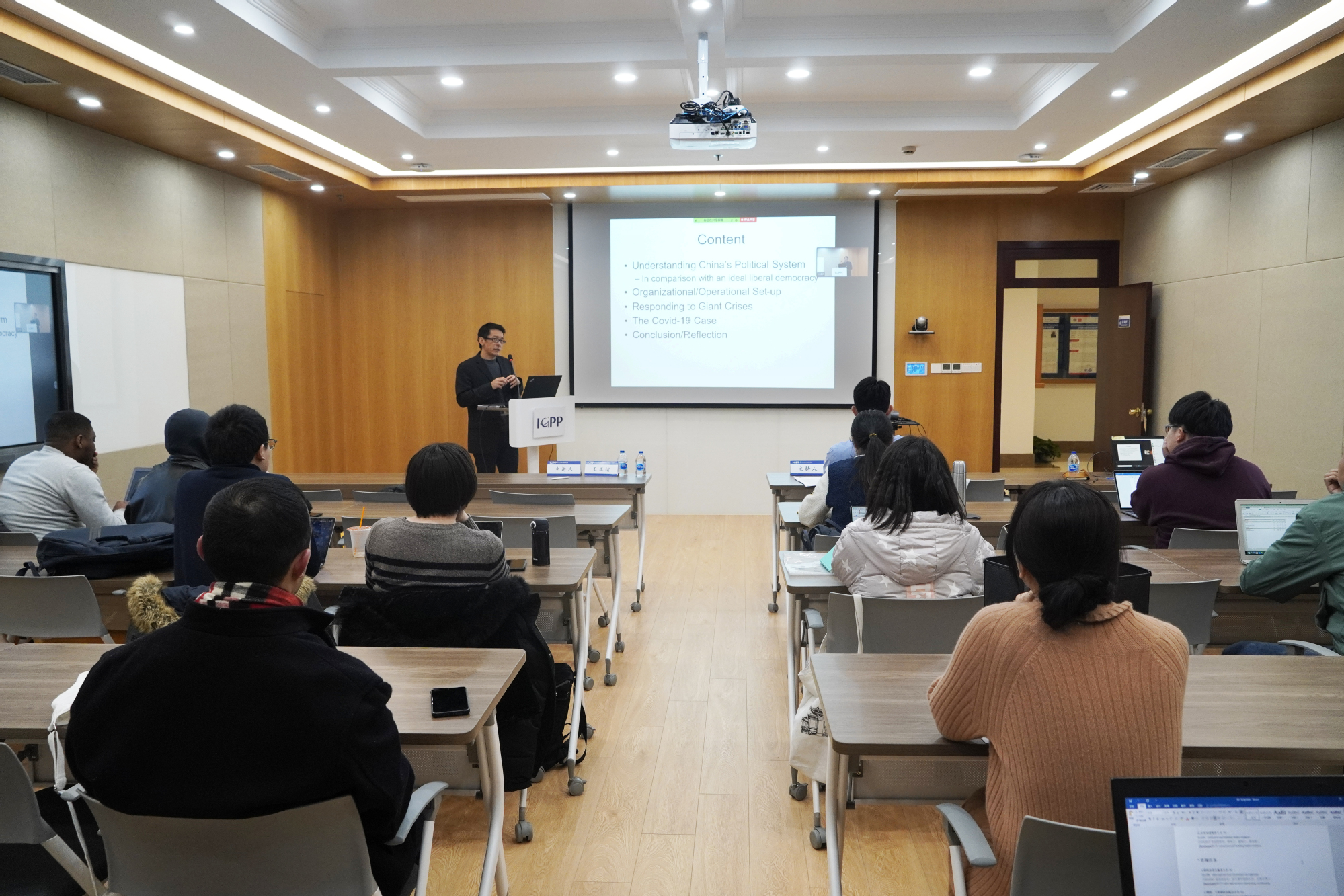
On December 15th, 2020, the Fudan Institute for Global Public Policy (IGPP) and the LSE-Fudan Research Centre for Global Public Policy invited Professor Zhengxu Wang to give a lecture entitled China's Political System: Responding to Giant Crises. The lecture was chaired by Yijia Jing, Dean of IGPP, and it was held both offline and online.

The event began with Prof. Jing’s brief introduction. Prof. Wang is a professor of political science. He once served as Acting Director and Senior Research Fellow at the China Policy Institute, University of Nottingham. His current research interests include the democratic values of Chinese citizens, institutional changes and political reforms in China's political system, and politics of governance in China. Prof. Wang has published widely on socioeconomic modernization, value changes, democratization, governance challenges, and leadership and elite politics in China and East Asia.
Prof. Zhengxu Wang's lecture was divided into three main parts. First and foremost, he proposed a conceptual framework for understanding political systems, arguing that the political system should be understood on two levels, the ideational level and the operational level,respectively. He showed how liberal democracy can be understood at the ideational level, in terms of the pursuit of civil liberty, individual freedom, people’s sovereignty, accountable and responsible government, limited government, and rule of law, among others. While applauding these liberal democratic values, Professor Wang went on to point out how the liberal democracy project misses a great number of important political values or ideas. These include, for example, the emphases on collective and communal welfare, state capacity and responsibilities of the state, state-society synergy, meritocracy, and socioeconomic development, and ruling party, among others.

He described the ideational components of the Chinese political system as that of a socialist people’s republic, and explained what the socialist, democratic, and republic values the Chinese political system embeds. He also clarified several common misunderstandings about China. People tend to misunderstand China since they have merely focused on the operational level. Emphasizing that China's operational system is rooted in its democratic and core republic values, followed by an elaboration of the concept of 'People's Democratic Dictatorship”, Prof. Wang expressed his hope that people would understand the essence of China’s ideational values.
After applying his conceptual framework to China, he explained how this political system responded to giant crises, with the case study of the Covid-19. He emphasized the severeness of the current crisis, and analyzed how the system worked simultaneously by vertical lines and horizontal blocs. He underlined the importance of a strong government throughout the process of solving the national giant crisis, giving examples of how central government organized interregional mobilization and enforced the rapid blockade of the Wuhan city. Lastly, he regarded the Fangcang Shelter hospital as having played a game-changer role that ensured China’s quick success in putting down the covid-19 epidemic.
At the end of the lecture, Prof. Wang interacted with both online and offline participators and had discussions on some specific issues.




